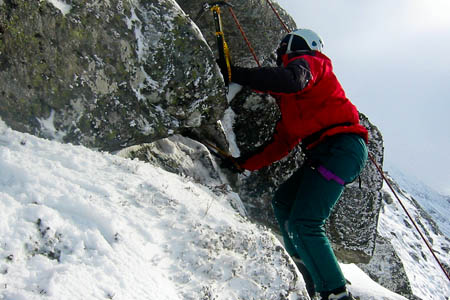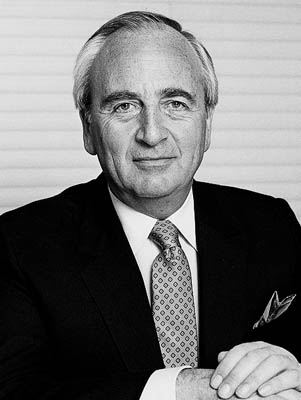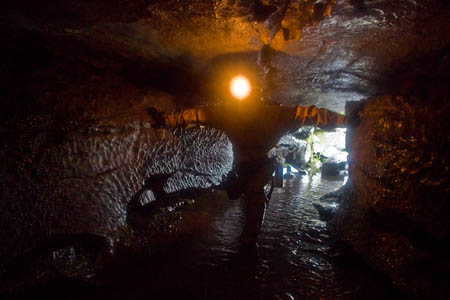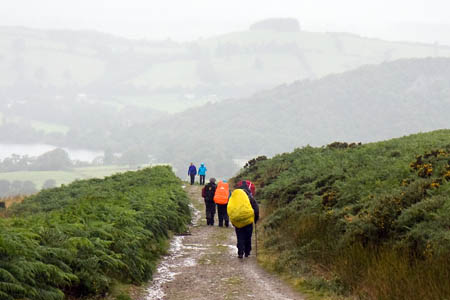On a cool, bright March morning in 1993, eight teenage schoolchildren and two of their teachers clambered into kayaks for a two-hour paddle across a Dorset bay.
The school party and their two instructors never reached their destination and six hours later the lifeless bodies of four youngsters, 16-year-olds Claire Langley, Simon Dunne and Rachel Walker and Dean Sayer, 17, were pulled from the choppy waters of Lyme Bay by rescuers.
The disastrous loss of four young lives led to the first successful prosecution for corporate manslaughter of the owners of the St Alban’s Centre, OLL, and managing director Peter Kite.
The parents of the dead teenagers and other campaigners pressed for legislation to cover outdoor activities, but the then Tory Education Secretary John Patten resisted calls, opting to introduce inspections and guidance and the Government’s own health and safety body said: “It is the opinion of the Health and Safety Executive, on the evidence available, that further regulation or statutory accreditation is not necessary.”
But at the trial of the company and Peter Kite, the judge Mr Justice Ognall said the potential for injury or death was too obvious for safety procedures to be left ‘to the inadequate vagaries of self-regulation’.
The HSE published an interim report in January 1995 on their survey of activity centres. 31per cent of centres were accredited by an existing voluntary scheme, and 84 per cent of providers had made a satisfactory assessment of the risks and had adequate control measures. MP David Jamieson focused on these figures to support his campaign for regulation, noting that 69 per cent did not participate in voluntary inspection and approval. He also pointed out that the figures showed that 16 per cent of providers did not have a satisfactory risk assessment.
In June 1995, the Activity Centres (Young Persons Safety) Act 1995 was passed by Parliament, leading to the setting up of the Adventure Activities Licensing Authority covering mainly education authority outdoor education centres and commercial providers.
Now, 16 years later, the coalition Government is planning to abolish AALA in response to a red-tape-busting report on health and safety by Lord Young of Graffham, the former Thatcher government Conservative Trade and Industry Secretary, who called the licensing regime ‘a cost and burden on business that adds little to the health and safety of young people undertaking adventure activities’.
Prime Minister David Cameron, welcoming Young’s report Common Sense, Common Safety, added: “All too often, straightforward legislation designed to protect people from major hazards has been extended inappropriately to cover every walk of life, no matter how low risk.
“Instead, we’re going to focus regulations where they are most needed; with a new system that is proportionate, not bureaucratic; that treats adults and reinstates some commonsense and trust.”
The HSE’s preferred option, in line with the policy adopted by the coalition Government, is to introduce a voluntary code of practice, and the executive is consulting interested parties. It stresses that all activities will still be covered by the Health and Safety at Work Act and the Management of Health and Safety at Work Regulations.
The HSE consultation ends on 21 September.
Yet the HSE admits that performance in the sector has been good. “There has been one fatality during a licensable activity and no prosecution has been brought under the Adventure Licensing Activities Regulations,” it said.
Alistair Cook, national chair of the Association of Heads of Outdoor Education Centres agreed. In a briefing paper on the consultation, he said: “Licensing has worked well for 14 years.
“It is largely well respected and provides an appropriate degree of safety assurance in a cost-effective way. Its aims, as set out in the guidance to the Adventure Activities Licensing Regulations, indicate there is a clear recognition that adventure education is a positive activity and that it should be encouraged.”
A major criticism of the regulations is that they cover only four activities: trekking, climbing, not including indoor walls, water activities and caving. Schools and voluntary organisations are not covered.
Wayne Bulpitt, chief commissioner of the Scout Association in the UK, said: “Basically, from the outset a number of years ago following the Lyme Bay disaster a number of people and organisations felt that statutory licensing was too heavy-handed and would in practice not have affected what happened at Lyme.
“At the time the Scout Association campaigned against statutory licensing in favour of a voluntary scheme. Additionally, AALA licences only covered a few specific activities which has given a slightly skewed view of which centres and providers are ’safe’.
“As formal licencing is planned to end in 2012 we expect a voluntary scheme, or schemes, will emerge. Already there is Adventuremark and LOtC [the Learning Outside the Classroom Quality Badge].
“We have always supported a voluntary scheme and will continue to do so.”
Deaths in the unlicensed sector include Rochelle Cauvet, 14, and Hannah Black, 13, who died in 2000 after falling into Stainforth Beck in the Yorkshire Dales under their teacher’s supervision. Leeds City Council was fined £30,000 after the girls’ deaths.
Amy Ransom, 17, died when she fell down a ravine on a mountain trek in Vietnam in July 2001. Eight pupils and a teacher from Wycombe High School were travelling with World Challenge Expeditions. An inquest ruled accidental death.
In August 2001 Amelia Ward, 16, died in an accident when she was hit by a boulder during an abseiling trip to South Africa with company Outpost.
In 2002, 10-year-old Max Palmer drowned when he jumped into Glenridding Beck in the Lake District during a trip with Fleetwood High School. Geography teacher Paul Ellis was jailed for 12 months for manslaughter.
In 2007, Charlotte Shaw, 14, died while practising for the Ten Tors challenge on Dartmoor. Greater Devon Coroner Dr Elizabeth Earland said organisers should hold nationally recognised qualifications for the activity.
Later the same year, Army Cadet Kaylee McIntosh, 14, drowned after falling into Loch Carnan in the Outer Hebrides and it was 90 minutes before it was noticed she was missing.
Last year grough reported that Keith Rugg, writing on the Outdoor Industries Association website, was urging those in the industry to campaign for the retention of the Adventure Activities Licensing Service, which administers the licences for AALA.
“Please can we lobby for the AALS to be retained to ensure that such places, whether local authority or company-owned and managed, provide a safe environment in which ‘the great outdoors’ can remain both a learning and challenging growth experience,” he said.
Mr Rugg said: “As an industry, we should be concerned at the intention to close the Adventure Activities Licensing Service, which was brought into being to safeguard all – and especially young people – using external centres and organisations for adventure activities, following the Lyme Bay disaster.
“The opportunities to utilise such places of adventurous learning safely, whether in youth or business groups or individually, are part of the lifestyle-making or challenging ethos upon which our industry depends and hopefully, thrives.”
In response to the posting, John Traynor added: “The AALA is one of those bodies that help to promote best practice in participation in outdoor activities and is a positive element in the encouragement of people, young and old, to enjoy the outdoors.
“It is not an ‘elf and safety kneejerk shut down’ quango.
“Interestingly, the threat to it represents an excellent opportunity for parties in the outdoor industries with complementary interests to act in a concerted way to exert pressure on central government to see sense.”
Teaching union the NASUWT said: “Abolishing the AALA and replacing it with a code of practice is, in the view of the NASUWT, a reckless and regressive step, demonstrating a lack of understanding of the responsibilities that schools and colleges have.
“The AALA plays a vital role in regulating the adventurous activities industry and it prevents ‘cowboy’ operations exploiting schools and young people. It gives schools and colleges confidence that there are approved safety standards when they enter into an arrangement with a company for any of the listed activities.
“There is no evidence whatsoever to suggest that businesses adhere to voluntary codes of practice and so its abolition would be a major regressive step and would leave schools and colleges vulnerable when engaging in these activities.”
Howard Lucas is another man not convinced voluntary codes of practice are the answer. His 17-year-old son Andrew died when he fell 300m (1,000ft) in the Picos de Europa on a trek organised by the Brathay Exploration Group two years ago.
Overseas trips are not covered by AALA licences, but there is a British Standard – 8848 – so named because it is the height in metres of Everest.
The Young Explorers’ Trust evaluations panel, which scrutinised the expedition, rejected the plans for the BEG’s PICOS expedition on the grounds that the leader team lacked the appropriate formal qualifications, knowledge of the route and experience of the environment into which the expedition was going.
Three months later, according to Mr Lucas, two members of the same panel rescinded this rejection and certified that the plans conformed to BS8848. “The only significant material change from March was that a new leader had been included, and he possessed a summer MLA,” he added.
“The BEG stated that without this certification to 8848, the expedition would not have run, in which case it is most likely that Andy would be alive today.
“To date, the YET has not been able to properly explain and justify their decision, which both contravened the YET internal rules of process, and flew in the face of commonsense and their previous, quite sound, observations in March.
Mr Lucas said: “The wider circumstances surrounding the death of our son have highlighted the current systemic weaknesses in British Standard 8848: the complete lack of governance for the standard; the way organisations can self-certify themselves and their ventures, without any independent oversight; the self-appointed experts, such as the Young Explorer’s Trust. Who gave them the authority to issue certificates of compliance to 8848? Answer: no-one.”
Mr Lucas also criticised the lack of redress available when organisations fail to meet the declared standard. “In our case we have discussed the matter with trading standards, who could find no basis upon which any action could be taken,” he added.
“To this end we consider that one option could be that the AALA takes on responsibility for basic governance of 8848, for example, maintaining a complete and accurate list of venture providers claiming adherence to 8848; maintaining a complete and accurate list of overseas ventures claiming compliance to 8848; maintaining a list of qualified auditors.
“We have always been clear that 8848 is an excellent standard, it is simply the lack of appropriate governance which gives such cause for concern, and this where the AALA may be able to play role in the future.
“We do not believe the proposal would incur significant cost.”
Andrew Lucas’s father also questioned the rationale for abolishing AALA. “With regard to the AALA, we have little direct experience of the organisation, but it seems to be effective at what it does – albeit with a limited role. It does not cost much to run and we have never seen any evidence to support the case that its abolition will advance the cause of safety for outdoor activities.
“It appears to be simply a victim of political dogma.
“It seems to us that ignorance amongst the relevant Government departments and civil servants is largely behind the current proposal, supported by certain vocal vested interests in the outdoor world who see a commercial and financial opportunity to move into the space vacated by the AALA.
“Whilst we are in no way automatic supporters of quangos or the AALA, it does seem that in this particular case, commonsense and its sound track record would suggest that an expansion of the AALA’s role would be in order.
“And the manner in which 8848 has been used and abused since its launch in 1997 hardly supports the proposition that a voluntary code of practice would be better than limited and focused statutory provisions.”
The Adventure Activities Industry Advisory Committee was set up by the Health and Safety Commission in 1996 and now describes itself as ‘A free-standing UK-wide body supported by SkillsActive and the Sport and Recreation Alliance.
The AAIAC’s response to the consultation is a pitch for the business currently provided by Tourism Quality Services which carries out licensing on behalf of AALA, and extending this into areas not currently covered.
It has representatives from commercial, charitable, voluntary and statutory sectors. It has developed the Adventuremark scheme and also awards the Learning Outside the Classroom Quality Badge, both of which are seen as potential replacements for AALA licensing.
It said: “Given the intention to deregulate, AAIAC would advocate an industry-led form of self-regulation.” This, it said, should include an inspection dimension ‘proportionate with the risk’.
The existing Adventuremark scheme could, the AAIAC said, be used as the basis for a new code of conduct without further major Government expenditure, which the HSE said is likely to cost £500,000 to develop.
Alistair Cook of the Association of Heads of Outdoor Education Centres said: “Its safety standards are identical to licensing – but Adventuremark can be applied to any adventure provision.”
The AAIA added: “Adventuremark is ready to take over from licensing. It is seen in the industry as appropriate, fully functioning and credible. It won’t be mandatory, of course, but if enough service users require it, the marketing imperative will prevail.”
About 200 Adventuremarks have so far been awarded.
The HSE estimates that abolishing AALA will save about £½m a year and providers will not face the £715 cost of a licence every two or three years.
But it admits that a licence is a useful marketing tool which offers assurance to users. Providing expert advice and gaining alternative ‘badges’ such as Adventuremark could land the outdoor activity industry with a £90,000 bill.
And there is a further complication: the issue in Scotland and Wales is covered by devolved powers and the governments there could decide to stick with licensing. Quite how that would affect companies and organisations operating across Britain’s borders is not clear.
It is also possible that, if Scottish and Welsh outdoor providers retained licensing, this would give them a commercial advantage because users would see an enhanced safety element in a statutory licensing scheme over a voluntary code of conduct.
Just to add more confusion, Adventuremark operates across Britain, whereas the LOtC Quality Badge is an England-only scheme.
Certainly, the outdoor activity industry seems in favour of the voluntary code route. But Alistair Cook said this must cover all ages, not just the under 18s and include all types of provider: commercial, public sector, not-for-profit and voluntary.
Tim Gill, an advocate of adventurous play for children and who shared the platform with David Cameron and David Willetts at the launch of the Conservatives’ Childhood Review said: “The HSE was born out of pre- and post-war workplace tragedies, when far too many employees were being maimed or killed due to management negligence and exploitation.
“Its culture and ways of working are still rooted in the factory setting. Here, the basic ‘risk is bad’ approach – work out the main risks, and take steps to reduce them – remains sound.
The problem is that places where children learn are not like factories.
“The Government, in its ringing endorsement of the Young review has given the strongest signal that it wants a more proportionate, thoughtful, balanced approach.
“My colleagues and I are working with the HSE to take forward the review’s recommendations. We will only be satisfied when HSE is crystal clear that what is needed is nothing less than a new philosophy: one that truly embraces risk, uncertainty and real challenge – even real danger – as essential ingredients of a rounded childhood.”
That’s a view unlikely to find favour with Andrew Lucas’s father Howard, who said: “The children who died in Lyme Bay deserve a better memorial than the abolition of the AALA.”





Tim Gill
19 August 2011This article has some valuable history and background, as well as giving a flavour of the views of those on both sides of the argument. However, I did not find it helpful in thinking through the complex issues raised. The key question is: what is proportionate in this sector? As things stand only a handful of other industries have a comparable degree of regulation. From memory, these include nuclear power, asbestos removal and offshore oil. Is outdoor adventure really as dangerous as these? The stats tell a different story.
The piece includes a quote from me. While I am pleased that my views are considered relevant, I am not happy about the way that the quote has been used. The piece implies that my remark was given to the author in response to the issues raised. It is in fact taken from a blog post of mine. This post does not consider regulation - it is about the wider role and position of the HSE. It also looks at wider issues beyond outdoor adventure. Adding a link to my post would be an improvement, but it would be better to amend the piece to make the context of my quote more clear.
Bob
19 August 2011Tim
Thanks for your comments. I was directed to your site by the chair of the Association of Heads of Outdoor Education Centres Alistair Cook who thought your views were worthy of inclusion in the piece, and I agree with him.
While I accept that yours is a much longer piece on the HSE, I think your opinion is valid within the context of the proposed abolition. AALA is, after all, the responsibility of the HSE.
I am quite happy to include here a link to your blog so our readers can see your full piece: http://rethinkingchildhood.com/2011/07/15/hse-zero-risk-childhood/
I have also included, at his own request, more information from Andrew Lucas's father Howard about the BS 8848 standards process that preceded the fateful trip to the Picos de Europa.
Bob Smith
Elaine Skates
19 August 2011I am afraid I must also complain about the accuracy of this report. It is not true to say the LOtC Quality Badge (LOtC Quality Mark is incorrect) is an England only scheme- we accredit 830 providers of learning outside the classroom across the UK. Also, this report makes no mention that the LOtC Quality Badge accredits educational visits across 10 sectors including expeditions; study, sports and cultural tours; farming and countryside and natural environment as well as the adventurous activities sector.
The driver for introducing the LOtC Quality Badge scheme in the first place was to simplify the picture for teachers and provide them with assurance that no matter what type of educational visit was being undertaken they could have confidence in the safety and educational quality of the provision.
I think it is vital that all of us who are passionate about inspiring educational opportunities beyond the classroom walls should ensure we are putting out accurate information to schools at this critical time. Muddying the waters will only put teachers off taking children out and about and result in fewer opportunities for our children and young people. I am sure none of us want to see that.
Kind regards,
Elaine Skates
Deputy Chief Executive
Council for Learning Outside the Classroom.
Bob
19 August 2011Elaine
Thank you too for your comment.
With regard to the LOtC Quality Badge, I apologise for the misnaming of the award, and have corrected this inaccuracy.
You say it is not true the LOtC Quality Badge is an England-only scheme. I based this statement on the briefing paper compiled by Alistair Cook, the national chair of the Association of Heads of Outdoor Education Centres, assisted by to Brian Ogden, chair of AAIAC 2005-2011 in his section on LOtC Learning Outside the Classroom and the Quality Badge.
The briefing paper states: “LOtC Quality Badge applies to England only, as the education is a devolved responsibility elsewhere in the UK.
“However, Adventuremark can be obtained for any adventurous activity covering any age range and is UK wide, or even overseas if an offshoot of a British organisation.”
The briefing paper also points out that: “The Adventure Activities Industry Advisory Committee is the award holder on behalf of the LOtC Council for the LOtC Quality Badge in adventurous activities, and can accredit centres for this to supplement an AALA Licence or Adventuremark as appropriate.”
I think it fair to have relied on a briefing paper prepared by the former chair of the body that oversees the awarding of the LOtC Quality Badge as being accurate. If it is not, I suggest you warn Mr Ogden of this as the briefing paper, produced last month, is a key document during the consultation period.
I also accept that the Quality Badge covers educational standards wider than just the safety good practice currently covered by AALA licensing, but this is a story about the potential effects of the abolition of the licensing body, on an outdoors news website, and the wider strands of the badge fall outside the scope of the story.
I believe the fact that Adventuremark exists alongside the LOtC Quality Badge gives scope for confusion among, for instance, teachers looking for a simplified system of assurance in outdoor activities.
I agree that it is imperative that young people are encouraged into adventurous outdoor activities but this story is not an attempt to muddy the waters; quite the opposite – it is an attempt to explain a very complicated and mixed regime, one element of which, the statutory one, is about to be dispensed with by the Government.
I also think it only fair to report the very real fears some people have about the consequences of AALA’s abolition.
Bob Smith
allan shaw
24 August 2011I work in an FE college over in merseyside am an ML, SP, Kayak coach etc etc and was suprised this year that my line manager now wants to run outdoor ed and do all the teaching herself despite the fact that she has no formal qualifications and extremly little experience. I mentioned it to the head of health and safety and she said that even though our students are only 16 we are not covered by AALA as we are a college?????
Outdoor Ed
06 September 2011That's True Allan.
The one issue with the AALA license, is that it is only mandatory for outdoor centers that are profit making organisations (i.e charge for instruction). It is optional for other centers and providers.
it has always been the case. it fails to regulate many of the outdoor providers that to an extent its setting up was due to. The majority of the outdoor providers that have to currently have an AALA license, were already pretty much doing what is required for the license, prior to it's setting up.
Although I don't necessarily disagree with the AALA scheme, in my opinion it never really improved the problem areas or organisations in the outdoor industry, as most of them are not required to have one.
wongo
14 September 2011Allan,
AALA or not, the other teacher would have to demonstrate that nshe manages H & S effectively.
I would venture that going against all exisiting best practice and guidelines in not a good starting point!
I would rather be you than her if HSE came calling after an incident. I suggest you send her a copy of The Management of Health & Safety Regulations 1999 oh and some Valium!